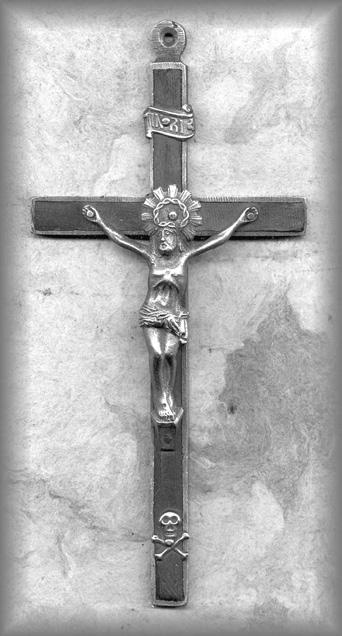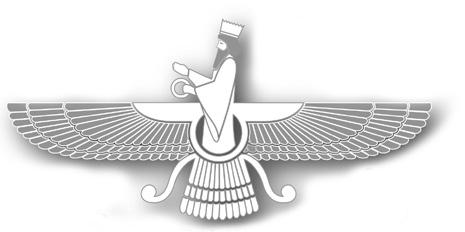
3 minute read
Sacred space
from 2010-03 Melbourne
by Indian Link
Pootaa maataa kee aasees
Jis simrat sabh kilvikh naaseh pitree ho-ay uDhaaro. So har har tumH sad hee jaapahu jaa kaa ant na paaro. Pootaa maataa kee aasees. Nimakh na bisara-o tumH ka-o har har sadaa bhajahu jagdees. (rahaa-o).
Satgur tumH ka-o ho-ay da-i-aalaa satsang tayree pareet.
Kaaparh pat parmaysar raakhee bhojan keertan neet Bhavar tumHaaraa ih man hova-o har charnaa hohu ka-ulaa.
Amrit peevhu sadaa chir jeevhu har simrat anad anantaa. Naanak daas un sang laptaa-i-o ji-o booNdeh chaatrik ma-ulaa.
Remembering Him, all sins are erased, and one’s generations are saved.
So meditate continually on the Lord, Har, Har; He has no end or limitation.
O son, this is your mother’s hope and prayer, that you may never forget the Lord, Har, Har, even for an instant. May you ever remember the Lord of the Universe.
Durood e ibrahimi
Allahumma sal’lee ‘ala muhammadune wa ‘ala alee muhammadin kama
Sal’lay’ta ‘ala ibrahima wa ‘ala alee ibrahima, innaka hammidum majeed.

Allahumma Ba’rik ‘ala muhammadune wa ‘ala alee muhammadin kama
Ba’rak’ta ‘ala ibrahima wa ‘ala alee ibrahima, innaka hammidum majeed
Virtues of perfection
Om Mani Pad Me Hum
Follow the path of wisdom and you can transform your impure body, speech, and mind into the pure exalted one of a Buddha
Summing up the entire teachings of Buddha, this prayer invokes the blessings of Chenrezig, the embodiment of compassion. Each of its six syllables represents the ultimate paramitas (virtues of perfection) – generosity, ethics, patience, diligence, renunciation and wisdom. The entire truth about the nature of suffering and the many ways of removing its causes (Mahayana), is said to be contained in these six syllables.
Also known as the mantra of Avalokiteshwara, it originated in India before moving to Tibet. The prayer is particularly revered by devotees of the Dalai Lama, who is believed to be a reincarnation of Chenrizeg. It is believed that chanting this sacred mantra, viewing it in written form or spinning it through the prayer wheel (mani) is very auspicious.
Hamazor
Hamāzōr bim
Hamāzōr ashō bim
Hamāzōr vesh kerfē bim Ham kerfē kārān bim, Dūr az vanāh kārān bim, Sarē sarāt va chinvat pūl buzrag shād va āsān mān, Bēvadirad bēhēst garōthmān va fashum akhān raushan garōthmān, Hamā khur-rami avar rasād.
May the True Guru be kind to you, and may you love the Society of the Saints.
(Pause)
May the preservation of your honour by the Transcendent Lord be your clothes, and may the singing of His Praises be your food. So drink in forever the Ambrosial Nectar; may you live long, and may the meditative remembrance of the Lord give you infinite delight.
May joy and pleasure be yours; may your hopes be fulfilled, and may you never be troubled by worries.
Let this mind of yours be the bumble bee, and let the Lord’s feet be the lotus flower.
Says servant Nanak, attach your mind to them, and blossom forth like the song-bird, upon finding the rain-drop.
Guru Arjun Dev Ji, the 5th guru of the Sikhs, composed this prayer for the Holy Book Sri Guru Granth Sahib Ji which expresses a mother’s love for her child and hope for his/her well being. This Shabad (hymn) is recited as a blessing on various occasions like when a woman is expecting her child, when celebrating a birth or a birthday.
Oh God, bless Muhammed and the family of Muhammed as you blessed the family of Ibrahim, and give baraka to Muhammad and the family of Muhammad as You gave baraka to the family of Ibrahim, in all the worlds. You are worthy of Praise and Glorious
Durood is an invocation which Muslims make by saying specific phrases to compliment the Prophet Muhammed pbuh. Durood is a kind of dua and is mentioned in hadith as well as in the Quran sharif. Divine blessings on Muhammad is the highest and the most meritorious act in Islam. The Prophet pbuh recommended durood as a way of sending blessings him. Durood-e-Ibrahimi is also recited as part of the salaat
The benefits of this dua are that sins are wiped out, good deeds are written, and self elevation is achieved as is enhancement in income and substance. It also releases tension.
May we remain united in strength, May we remain united in righteousness, May we remain united in many good deeds, May we remain the doers of all meritorious deeds, too. May we remain afar from the guile of evil-doers, May we be able to cross the Chinwad Bridge with rejoicing and ease, from over the summit, May we, then, attain eternal bliss in the Heavenly Celestial Light of Garothman, May such pious yearnings be granted unto us.

This short Hamazor prayer in the Book of Daily Prayers - the Khordae Avesta was composed after Iran was lost to the Arab invasion in the Battle of Nihavand 641 CE (also called AD). It is still recited by every Iranian follower of the Religion of Zarathushtra at the end of his daily ‘Namaaz’ (of untying and tying the Sacred Thread - the Kusti) as a sign of solidarity, but mainly to obtain personal solace and to maintain their courage and dignity in the face of unjust laws against them there. It is also still prayed by their later migrant counterparts (the Qaddimis) in India, although there are no such unjust Indian laws.











